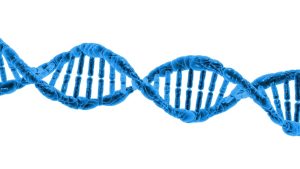
Protein is an essential nutrient for many of the body’s functions, including the building and repair of muscle, skin and bones. It helps to support a healthy immune system, maintain healthy blood sugar levels, and provide the body with energy. For these reasons, it is an important part of any healthy diet.
When it comes to protein, quality matters. There are many different types of protein sources on the market, but not all of them provide the same level of quality or bioavailability. Protein sources such as whey, casein, and egg whites are considered to be of higher quality, as they are more easily absorbed by the body. They also contain a higher concentration of essential amino acids, which are necessary for healthy muscle growth and repair. In addition to consuming protein from food sources, there are also many different types of protein supplements available.
Protein supplements can be a convenient way to meet your daily protein needs, as they are easy to transport and can be consumed quickly. Whey protein is one of the most popular and widely used protein supplements, as it is rapidly digested and contains a high concentration of essential amino acids.
No matter where you get your protein from, it is important to consume it in the right amounts. In general, most adults should aim to consume 0.8-1.0 grams of protein per kilogram of body weight per day. For athletes or those who are engaging in regular strength training, it is recommended to consume 1.2-1.7 grams of protein per kilogram of body weight per day.
Health Benefits Of Proteins
1. Builds and Repairs Muscle: Protein is essential for muscle growth and repair. When you eat protein, it’s broken down into amino acids, which are then used to build and repair muscle fibers. This is especially important for athletes and those looking to build muscle.
2. Boosts Metabolism: Protein is an important nutrient for boosting metabolism. When you eat protein, your body needs to use more energy to digest and process it. This means that eating protein can help you burn more calories and lose weight.
3. Improves Immune System: Protein is critical for building and strengthening the immune system. It helps your body create antibodies and other immune cells that help fight off viruses and bacteria.
4. Regulates Hormones: Protein helps to regulate hormones in the body, which is important for proper functioning. Protein helps to balance hormones, which can help reduce stress, reduce symptoms of PMS, and improve mood.
5. Helps with Weight Loss: Eating protein can help you lose weight. Protein has a higher satiety level than carbohydrates and fats, which means it can help you feel fuller for longer. This can help you eat fewer calories and reduce your total calorie intake, which can help you lose weight.
Overall, protein is an essential macronutrient that plays a critical role in the body. From building and repairing muscle to boosting metabolism and regulating hormones, protein offers numerous benefits for your health. So make sure to include plenty of protein in your diet to reap all the benefits it has to offer.
Role of Proteins in Clinical Studies

A clinical study on proteins can provide valuable insight into the molecular basis of disease and help researchers develop new treatments. The purpose of a clinical study on proteins is to determine how proteins are involved in a particular disease or disorder.
A clinical study typically involves analyzing the proteins found in a patient’s blood or tissue sample. Researchers look for changes in the structure, activity, and expression of proteins in order to understand how they may be involved in the disease. For example, if a person has an autoimmune disorder, researchers may look for changes in the levels of certain proteins that indicate an autoimmune response.
In addition to identifying the proteins involved in a particular disease, a clinical study on proteins can also reveal how certain proteins interact with each other and other molecules. This type of information can be used to develop new treatments for a variety of diseases, such as cancer and heart disease. For example, researchers may be able to identify proteins that can be targeted with drugs to treat certain types of cancer.
Clinical studies on proteins can be time-consuming and costly, but the results can be invaluable for medical research. By studying proteins, researchers can gain a better understanding of how certain diseases work and develop more effective treatments.
Here is an interesting video on protein foods which you may want to check out.